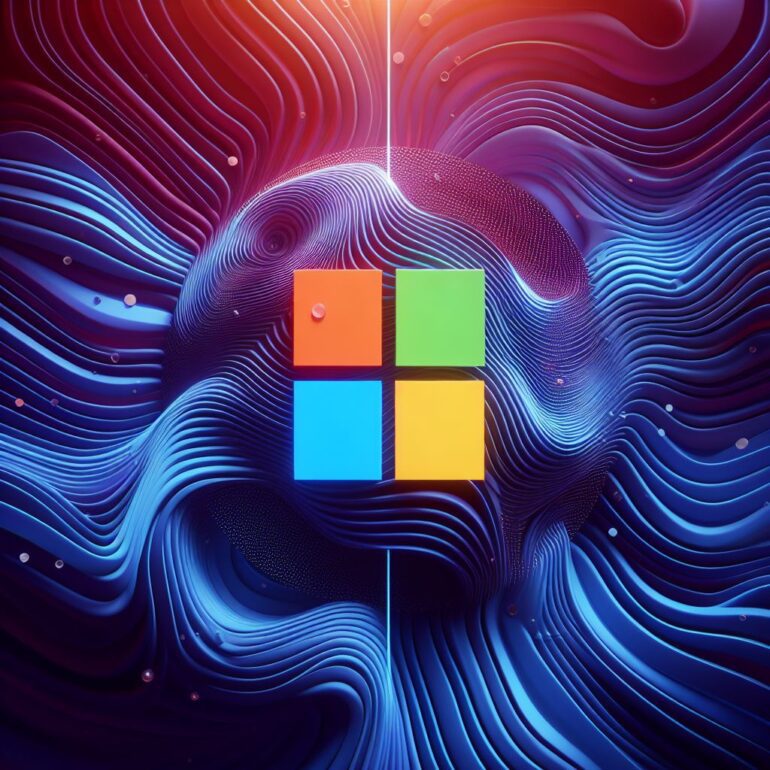TL;DR:
- Microsoft launches Copilot, a standalone AI chatbot app for Android users.
- The app leverages OpenAI’s GPT-4 and DALL-E 3 for advanced language and image generation.
- Copilot offers AI-enhanced functions, from answering complex questions to creating visuals and drafting documents.
- It integrates Microsoft’s AI services under the Copilot brand, challenging subscription-based models.
- The release aims to compete with free or integrated assistants like Siri, Google Assistant, and Bixby.
- Copilot’s use of GPT-4 positions it as a cost-effective alternative for advanced AI.
- Speculation surrounds the potential iOS launch, following the trajectory of ChatGPT.
- The market witnesses rapid diversification and innovation with various AI-powered apps and enhanced capabilities in existing apps.
Main AI News:
In a subtle move that caught the attention of keen-eyed tech enthusiasts, Microsoft has discreetly introduced a standalone AI chatbot app for Android users. Known as Copilot, this latest release from the tech giant, headquartered in Redmond, Washington, further contributes to the ever-expanding realm of AI-powered mobile applications. This strategic release aims to diversify the array of options available to consumers right at their fingertips.
The Copilot app, now available on the Google Play Store, represents Microsoft’s latest stride in harnessing the capabilities of its partnership with the renowned AI developer, OpenAI. This innovative app seamlessly integrates the sophisticated language and image generation prowess of GPT-4 and DALL-E 3 with GPT-Vision’s image analysis features. In simpler terms, Copilot stands as a promising contender, offering text responses on par with ChatGPT Plus and stunning visuals akin to those crafted by OpenAI’s premium services.
This evolution of the previous Bing search app into Copilot empowers users with an array of AI-enhanced functions. From tackling complex queries to generating visual content and drafting documents, Copilot transforms the Android experience into a realm of AI-driven productivity.
Copilot serves as the umbrella brand encompassing all of Microsoft’s AI-powered services. It amalgamates its coding assistant, the now-deprecated virtual assistant Cortana, and its AI-driven web search and chatbot into a unified product offering.
Of particular significance is the fact that Copilot is making these advanced AI features accessible at no cost, a departure from the subscription-based model of ChatGPT Plus. This strategic shift repositions Microsoft’s offering as a compelling alternative to other free or integrated assistants like Siri, Google Assistant, and Samsung’s Bixby.
Furthermore, Copilot’s utilization of GPT-4, renowned for its nuanced understanding and responsive capabilities, is a notable advantage. It caters to those who wish to explore the latest AI models without committing to a subscription, making it an attractive choice.
While Copilot is currently exclusive to Android users, speculation is rife about its impending availability on iOS. Given Apple’s substantial market share and the strategic importance of reaching a wide user base, the potential iOS launch could mirror the trajectory of OpenAI’s ChatGPT app, initially debuting on iOS before expanding to Android.
In a rapidly evolving landscape, traditional virtual assistants now face formidable competition, leading to a surge in diversification and innovation. Numerous AI-powered apps, ranging from chatbots like Poe and Replika to general assistants like ChatGPT and Copilot, have entered the market. Additionally, established popular apps such as Facetune, Deepl, Grammarly, and Duolingo have leveraged generative AI to enhance user experiences, offering better advice, improved image editing, superior translations, and overall enhanced outputs across various domains.
Conclusion:
Microsoft’s Copilot entry into the Android market signifies a significant disruption, challenging established subscription-based AI assistants. Its strategic move to offer advanced AI features for free poses strong competition to existing integrated assistants, promising a diverse and innovative landscape for users.

